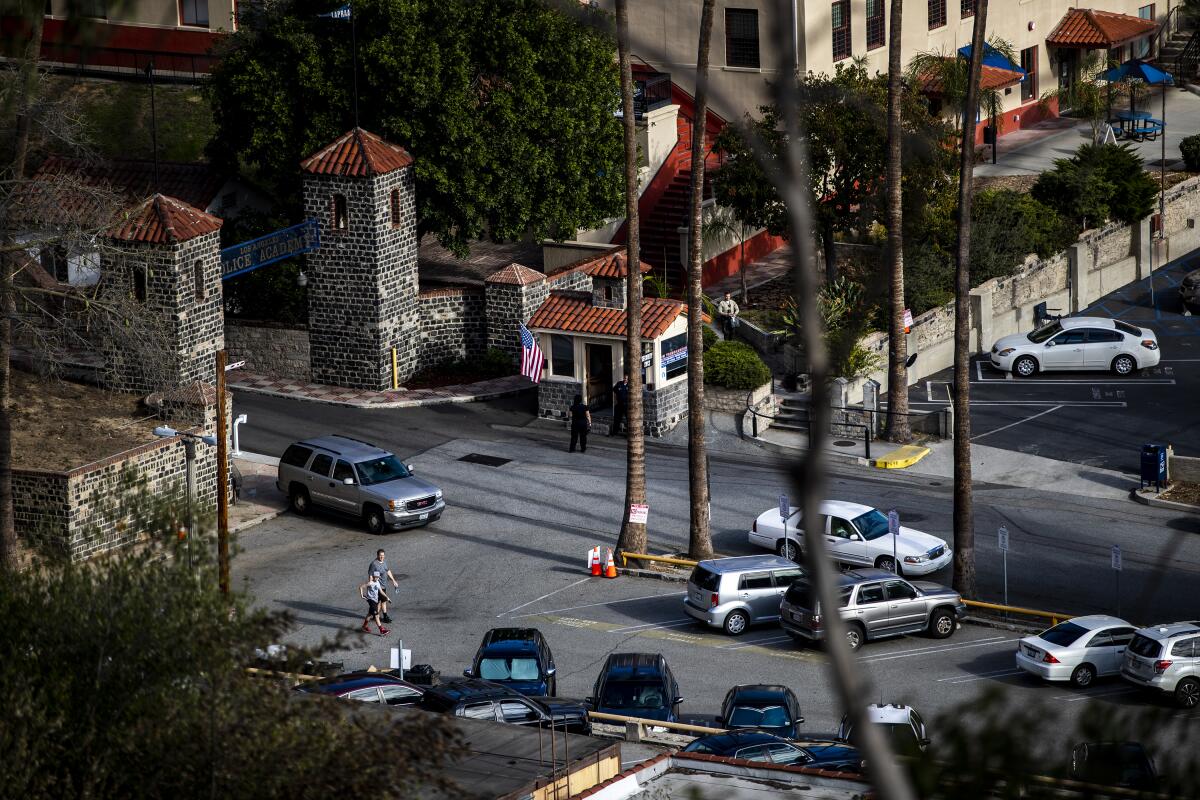LAPD gun scandal has the faint smell of Rampart

- Share via
Although the Los Angeles Police Department has had many dark chapters, the darkest was likely the Rampart corruption scandal of the 1990s, which began with one officer shooting a fellow officer dead. A resulting investigation uncovered a string of thefts, lies, attempted murder, and shocking mismanagement and lax oversight.
It was hard to see how the department could come back from that low point. It was not unreasonable, for a time, to ask whether the LAPD should be disbanded and replaced with a new agency not burdened by the same culture of secrecy, racism and disregard for the very laws that its personnel were sworn to enforce.
But the city and the LAPD entered into a consent decree with the U.S. Department of Justice that required sweeping reforms in training, supervision, documentation and a host of procedures that were supposed to prevent unethical behavior or at least catch it early before it could take root. In 2013, 12 years after it began, the consent decree was lifted and the department emerged as the most reformed and best trained large law enforcement agency in the nation.
So why does the acrid scent of Rampart seem to blow through town more frequently than the smell of the Hyperion sewage treatment plant after a mechanical breakdown and a strong onshore breeze?
There is more than a faint whiff emanating from the Los Angeles Police Academy’s gun store, whose manager was arrested a year and a half ago on charges that he stole weapons and sold them.
Sold them to whom? The Times reported Monday the allegations of prosecutors that the buyers included LAPD officers who maybe did, but maybe didn’t, know all along that the weapons they were purchasing were stolen from their own agency’s store. The officers allegedly got deep discounts, and the transfers were documented with sketchy paperwork. Some officers appeared to be purchasing and reselling large numbers of guns on their own.
Perhaps most disturbing is the allegation of Capt. Lillian Carranza, who was in charge of investigating the incident, that top police commanders tried to block the probe.
Some of the officers accused of wrongdoing say that they are the victims, and that the LAPD was lax in tracking sales from the gun store.
The district attorney declined to proceed against three officers, and investigations are pending against two more, but Los Angeles is left to wonder. Can the LAPD properly investigate crimes that occur in its own house and allegedly involve its own personnel? And weren’t these kinds of things supposed to be nipped in the bud because of policies and procedures put in place after the Rampart era?
There are those who claim that police cannot be reformed — that bad practices are built into the very structure of the job, and that police agencies must be abolished. We don’t buy that. But the dirty wind of Rampart keeps blowing, and it’s on the LAPD to prove to the satisfaction of the people it is supposed to protect and serve that it can do that, legally, properly and transparently.
More to Read
A cure for the common opinion
Get thought-provoking perspectives with our weekly newsletter.
You may occasionally receive promotional content from the Los Angeles Times.









